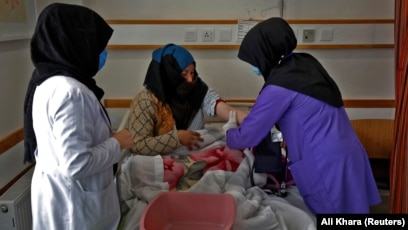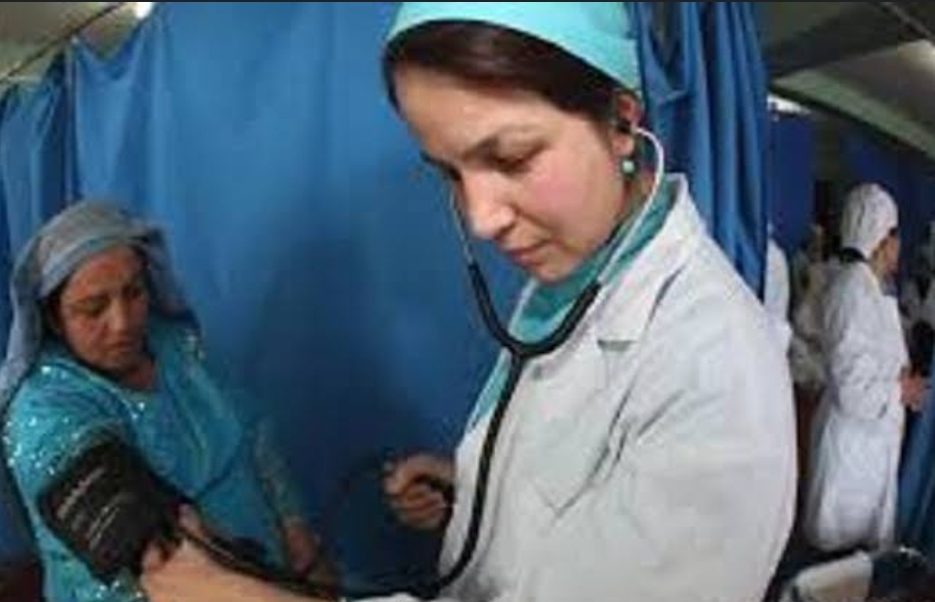
شریک سازید:
In Chakhansur district of Nimroz province, where the desert heat and long distances make life difficult, only one midwife is responsible for attending to thousands of pregnant women. Here, childbirth is not a natural experience—it’s a battle for survival.
Marzia, 26, mother of three, tells her story with tearful eyes:
“It was a dark night. My labor pains had begun. There was no electricity in the house. My husband nervously started the motorcycle. The clinic was over an hour away. On the road, I felt the baby was about to come. When we arrived, the midwife was busy with another woman. I had to wait in the hallway. The pain was unbearable—I screamed, but no one came. At that moment, I thought I would die. When the midwife finally came, I had already lost consciousness. The baby survived with difficulty. Even now, I can’t believe I heard his first cry.”
Rabia, 34, exhausted but determined, shares:
“I’ve given birth four times, but I’ve never felt so helpless. During my last delivery, I suddenly started bleeding. My husband panicked. We had no vehicle. A neighbor helped us reach the clinic. When we arrived, the midwife was already attending to three other women. I was losing blood fast and just prayed. The midwife did her best, but she’s only one person. My baby was born, but I nearly lost my life.”

Zuleikha, 22, struggles to hold back tears:
“It was my first child. I didn’t understand the pain. There’s no clinic in our village. It took two hours to find transportation. When we arrived, the baby was no longer breathing. The doctor said we were too late. That night, my world turned dark. All I wanted was to hear my baby cry, but he never did. If we had a midwife in our village, he might still be alive.”
Latifa, 29, mother of five:
“During my fifth labor, my husband wasn’t home. Only my mother-in-law was with me. When the pain started, there was no one to take me. Neighbors helped bring me to the clinic. When we arrived, another woman was already in labor, and the midwife was with her. She told me to wait. I lay down on the floor in pain. The baby came without help. The midwife arrived after it was over. I’ll never forget that moment—every childbirth feels like fighting death.”
Dr. Nahid Sadat, an obstetrician and gynecologist, explains:
“This district has only one midwife for over sixteen thousand women. It’s a disaster. Women give birth on the road to the clinic, or wait in hallways. Even we, the doctors, are overwhelmed. When we can’t help in time, we feel ashamed—but our capacity is limited.”

Dr. Nahid Sadat, an obstetrician and gynecologist, explains:
“This district has only one midwife for over sixteen thousand women. It’s a disaster. Women give birth on the road to the clinic, or wait in hallways. Even we, the doctors, are overwhelmed. When we can’t help in time, we feel ashamed—but our capacity is limited.”
Arzo, the 32-year-old midwife, tirelessly working day and night, says:
“There are days when I can’t even stand from exhaustion, but I can’t stop. Every woman who comes to this clinic comes in fear. Some nights, I deliver five or six babies. But I’m only human. I just wish another midwife could help me. These women deserve better care.”
In Afghanistan, where even a basic childbirth can become a life-threatening ordeal, the lack of midwives poses a deadly risk to both mothers and newborns. The stories in this report reflect just a fraction of the silent pain thousands of women endure across the country—every day, with every birth, with every scream unheard.
The names mentioned in this report have been changed for security reasons.
Reporter: Bahara Sediq


